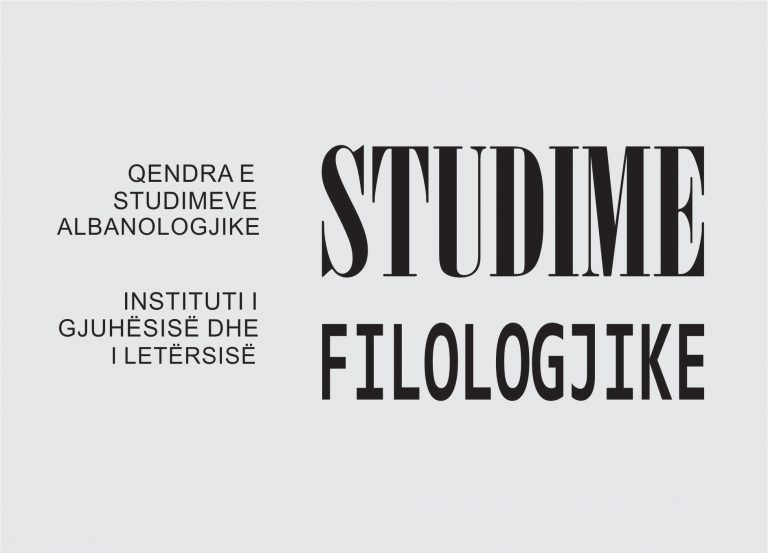Erosi në prozën e Dritëro Agollit
Eros in Agolli’s Prose
Author(s): Anila MullahiSubject(s): Cultural history, Social history, Novel, Albanian Literature, Post-War period (1950 - 1989), Ontology
Published by: Qendra e Studimeve Albanologjike
Keywords: Dritëro Agolli; Albanian literature; eros; prose; love; platonic feelings; lovers; post-war literature; novel; eroticism; desire for relations; interaction with the other beings;
Summary/Abstract: Eros, which appears sometimes as fluent and sometimes as a concrete action, it is not very present in Albanian literature after year 1944. It is often considered taboo, even as a “manifestation of degeneration”. In Agolli prose, love will appear in all its forms, at times it will be a platonic feeling and at times it will be a vigorous union where feelings become concrete. The erotic act is not described in detail, but is present in the bursts of instincts that encompasses the lovers. They meet as by accident, crossing their eyes, the first erogenous area, and after that it becomes subject of dreams and the inability to sleep. Eros, in Agolli’s work, is not only the result of the accepted love, but also of betrayal. They are very rare in the Albanian literature of the ’50s and the ’60s, the descriptions of extramarital affairs. In the collection of stories “The sounds of the past winds” published in 1964, that was quickly removed from circulation, Agolli had created a series of atypical characters, which were outside the norm. In these stories we find brave women, who unhappy with their husbands, go and seek happiness somewhere else, and do not say no to temptation. Agolli has created a series of completely sad, disappointed female characters. He has uncovered their world, their feelings which did not disappear although because of the circumstances they were subject to the rules. Love, eros are beyond good and evil, beyond what is pleasing to society or not. In the novel “Commissar Memo”, the commissar is far from the charasteristic character. He is a hero who loves a girl at a time when such a thing could lead for him to be shot. The novel “Rose in the Glass” was criticized as a “lemonade book” because in this work Agolli had created characters that showed neither courage nor bravery, and even showed weakness before their emotions and suffered from spiritual uncertainties. In the description of Eros in Agolli’s it is apparent the ressemblance with folk literature, which is considered by scholars that had more freedom than written literature, which had greater internal restriction. The poems of Cute Babule in the novel “The Ark of the Devil” are filled with eroticism. He, through them, makes powerful stories for human love and eros as an instinct of life. Eros is a “desire for connection”, a desire for relations and interaction with other beings.
Journal: Studime Filologjike
- Issue Year: 2016
- Issue No: 03-04
- Page Range: 47-57
- Page Count: 11
- Language: Albanian

